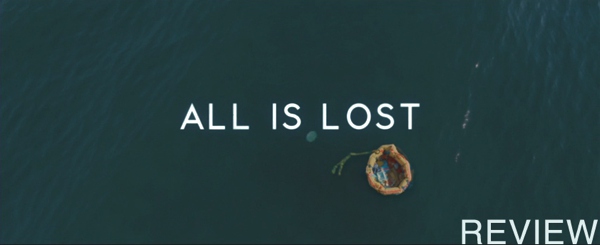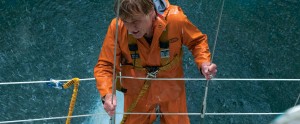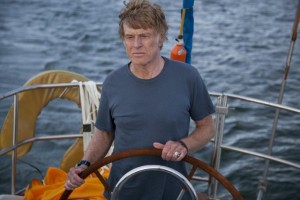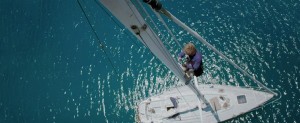
My friend GI Joe described All Is Lost this way: “it’s Gravity on a boat.” And to that extent he’s not wrong. Hollywood often copies itself. Two different volcano disaster movies came out at the same time. Two different meteor from space will crush the earth movies showed up simultaneously. And now, two different I’m alone In the middle of nowhere movies are out. But given how risky, groundbreaking, and otherworldly Gravity was, it’s hard to imagine Hollywood knew they needed to throw out another lone survivor movie to compete. So I like a different way to compare them. Which is to say both films have been brought to this world via bold and visionary directors with a singularly different way to tell stories.
For me, it’s getting to the point where we can take David O’Russel, Wes Anderson, P.T. Anderson, Quentin Tarantino, Alfonso Cuarón, throw in All Is Lost’s J.C. Chandor, and basically the rest of us can go home. Notice that every single one of these people write and direct their own films.
There’s not a lot to explain. Robert Redford plays a man, who’s name you never learn. It’s not important because he’s the only person in the entire film and says about one paragraph of words throughout, most of which come in the opening stanza: a letter he is writing explaining that he tried his hardest to survive but seems to have failed. At which point the movie jumps eight days into the past to show us what happened. I’m generally not a fan of flashbacks. They seem like a cheap trick to make us interested in a story as we try to piece together how it leads back to the beginning. It also generally implies that a story isn’t interesting enough to just start without that trick. And in this case I would have loved to know whether that was true or not. It certainly was okay for Gravity not to flashback, which is a faster paced and probably a better movie. However All Is Lost holds it’s own in comparison.
The movie is simply a series of cause and effect events as we watch our man deal with problem after problem of sailing his boat alone into the Indian Ocean. Chandor’s camera is very skilled. It loves showing the beauty of the sea contrasted against its danger. Sometimes at the same moment. The danger to our man, dying of heat and thirst above is the same medium in which the gorgeous pool of fish swim in idle peace down below. Highlighted by cameras shooting straight up through the water. Gorgeous stuff.
For me the real star of the show though is the sound crew. This film is all about atmosphere, a sense of dread, and the unknown. Scenes of our man getting tossed around in circles, whilst the storm flips the boat upside down. He stays calm throughout the process where most would give up the ghost just from the energy it takes to survive. And it’s fascinating to watch him work out solutions to each problem that comes up. Like how he makes clean drinking water. Or even simply the hammock he rigs to sleep above the water that’s filling his boat.
For each problem he devises a solution but mother nature has more problems to deliver. And it’s this tug of war in a movie without words, shot with delicate beauty at times, that keeps us watching. And for those youngsters who think it’s silly to see old people acting, go see this. The camera never hides us from Redford. It doesn’t put a sweet face on him being seventy. He does most of his own stunts even. Good is good and this is compelling watching. I will say, Peter Travers went overboard calling this a master class in acting. For the most part Redford sees problem, barely grimaces, and solves problem. It’s good. Don’t get me wrong. I liked him very much. But it’s not quite as dynamic as the words “master class” might suggest.
And even though All Is Lost runs astray with logic or pushes the boundaries too much a few times (like why he never wore a life jacket or what my boating friend pointed out when he said for a man as equipped as Redford was, he didn’t have a basic safety GPS device that all modern boating people have) this is still bold film making. Another director of modern times, bucking the trend and showing how compelling great acting and direction are. There’s no saving the world or explosions of skyscrapers. But the emotional tension is far more effective than anything Thor imagines. And in the end, a boat, one man, and the elements, provides an experience vastly more exciting and nail biting that most of the mindless action movies coming out. At 106 minutes it’s plays more like 120. By the end I was kind of wishing they’d finish because a few tricks gets used multiple times. However, instead of saying the extra perceived length is bad, I forgive the mistakes and say this is a director to watch. We need people like him making more interesting things.




You must be logged in to post a comment.